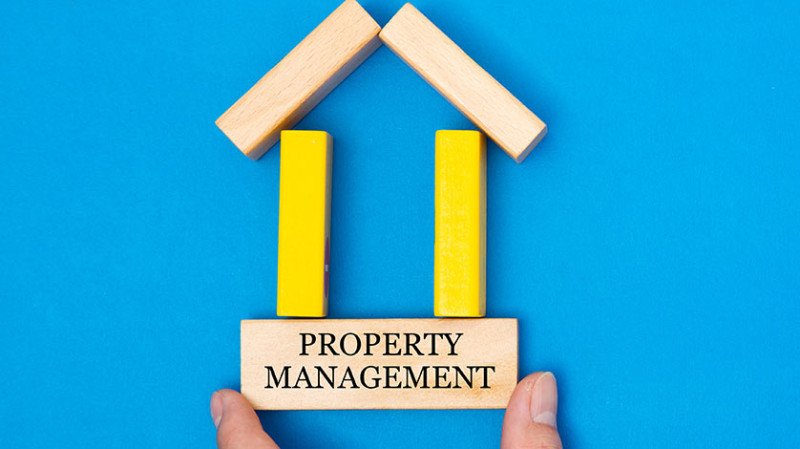
If you're diving into the world of property management, whether you're a DIY landlord looking to handle rentals yourself, a young professional investing in your first buy-to-let, or a trade expert expanding your services, there's one truth you can't ignore: property management requires more than collecting rent. It demands a well-rounded skillset, from legal know-how to interpersonal finesse and maintenance planning. To give you a strong foundation, here are 11 essential training basics every beginner must master.
1. Understanding Landlord Responsibilities and Legal Obligations
One of the first — and most crucial — steps in property management is understanding what the law expects of you. UK landlords have a legal duty to provide safe, habitable, and legally compliant housing. This includes carrying out appropriate safety checks, such as gas safety inspections and electrical condition reports, as per the Housing Health and Safety Rating System (HHSRS).
As a landlord or property manager, you'll also need to understand the Tenancy Deposit Scheme (TDS), how to issue required documents like the Energy Performance Certificate (EPC), and ensure your tenancy agreements comply with legal requirements including the latest changes to Section 21 and Section 8 notices.
Failing to meet these responsibilities can result in heavy fines, legal action, and even losing the right to repossess your property. Getting trained in these legal standards not only protects your investment — it also gives tenants the confidence that you’re a reliable and responsible manager.
2. Mastering Tenant Screening and Onboarding
Finding the right tenants isn’t just about who's willing to pay rent — you need to assess reliability, financial stability, and compatibility with your property. Solid tenant screening helps reduce the risk of rent arrears, neighbour disputes, and property damage down the line.
This process should include credit checks, employment verification, landlord references, and right-to-rent checks, which are legally required in the UK. You’ll also need to understand how to navigate the GDPR rules when handling sensitive tenant information during this process.
Once a tenant is selected, getting the onboarding process right is key. This includes ensuring the tenancy agreement is signed, deposit protection is in place, and the correct "How to Rent" guide is issued, setting the stage for a professional and smooth relationship.
3. Setting and Managing Budgets
Property management comes with both predictable and surprise costs. Learning how to create and manage budgets for maintenance, taxes, insurance and void periods helps ensure ongoing profitability.
Property managers must understand gross yield versus net yield, and calculate return on investment (ROI) to ensure the property actually delivers value. Having a sinking fund for unexpected repairs like boiler replacements can be the difference between panic and control.
Additionally, establishing rent levels that are competitive yet profitable requires knowledge of the local market and rental trends. This skill balances business sense with a degree of strategic foresight.
4. Navigating Tenancy Agreements
Tenancy agreements are more than just a formal piece of paper — they are your legal backbone in any dispute. A well-drafted agreement protects both the landlord and tenant and clearly defines expectations.
Beginner landlords often rely on templates found online, but without proper understanding, you can easily miss essential clauses related to break periods, rent increases, or maintenance duties. Legal training or advice is essential to customise agreements to your specific needs.
In England and Wales, Assured Shorthold Tenancies (ASTs) are commonly used and come with set legal structures you must comply with. Learning the ins and outs of agreements gives you confidence and legal grounding.
5. Communicating with Tenants Effectively
Professional communication is essential to build trust and deter potential conflicts. Whether it's notifying about rent changes, organising repairs, or addressing concerns, effective communication builds long-term relationships.
Training in both verbal and written communication helps beginners maintain professionalism, especially when dealing with sensitive topics like late payments or damage claims.
Using property management software can help streamline and document communication, ensuring a record of all interactions that you can reference in future disputes. Clarity, consistency, and courtesy are your golden triad in tenant relations.
6. Coordinating Repairs and Maintenance
A key part of property management is keeping the home in top condition — not only to meet legal standards but also to retain good tenants. Proactive property managers keep maintenance logs, schedule regular inspections, and budget for common issues like boiler servicing or roof repairs.
Whether you’re doing the work yourself or coordinating tradespeople, you’ll need basic knowledge in plumbing, electrics, and general repairs to judge the quality of work and understand costs.
Here’s a basic maintenance calendar to get started:
| Task | Frequency |
|---|---|
| Gas safety check | Annually (legally required) |
| Electrical inspection (EICR) | Every 5 years |
| Smoke/carbon monoxide alarms test | Monthly |
| Boiler service | Annually |
| Roof/gutter inspection | Twice a year |
7. Managing Rent Collection & Arrears
While collecting rent might seem straightforward, things can quickly go awry when tenants face financial difficulty. Training in setting up standing orders, issuing payment reminders, and navigating arrears procedures arms you with the knowledge needed to act decisively and sensitively.
Understanding the pre-action protocols, communicating effectively with unpaid tenants, and documenting agreements are key steps before any legal action. Ideally, you'll never need to serve a notice — but if it comes to that, being prepared is critical.
Automating rent collection through software or dedicated apps can also help maintain transparency and consistency, particularly for those managing multiple properties.
8. Complying with Safety and Fire Regulations
Safety compliance isn’t just about ticking boxes — it’s about protecting lives and your investment. From ensuring carbon monoxide alarms are installed in rooms with solid fuel appliances, to implementing fire doors and escape routes in HMOs, the regulations are stringent.
You must also be aware of the Fire Safety (England) Regulations 2022 for multi-occupancy buildings, including regular checks of communal areas and evacuation plans.
Completing a proper risk assessment, even for single-let homes, demonstrates due diligence and can help identify issues before they become liabilities. Professional safety training courses are widely available and a wise investment.
9. Staying Organised with Property Documentation
Property managers need airtight records to remain compliant and avoid disputes. From inventory checklists to rent receipts and tenancy agreements, your documentation should be up-to-date and stored securely.
Digital property management tools are a game-changer here, helping keep everything in one place. But even a simple spreadsheet tracker—if consistent and accurate—is a great start.
Creating a master checklist of required documents for each property ensures you’re audit-ready and legally compliant at all times:
- Tenancy agreement
- Gas and electrical safety certificates
- Deposit protection details
- EPC (Energy Performance Certificate)
- Inventory report with photos
- Tenant references and right-to-rent checks
10. Understanding Eviction Processes and Dispute Resolution
No landlord or manager wants to evict a tenant, but sometimes it’s necessary. Learning how to follow the appropriate steps legally and ethically can save you stress, time, and money.
In England, evictions generally fall under Section 8 or Section 21 of the Housing Act 1988. Section 21 is a ‘no fault’ notice, while Section 8 is served if laws or tenancy terms have been broken. However, recent reforms to abolish Section 21 mean you need to be even more clued up than ever before.
Dispute resolution should always be the first step. You can use mediation services, written agreements, or even small claims court to avoid costly legal battles. Making the eviction process your last resort shows responsibility and professionalism.
11. Leveraging Technology for Smarter Management
Gone are the days of paper ledgers and lost text message threads. Digital property management platforms help streamline processes from rent collection and repair requests to document storage and communication.
Whether you’re using Buildium, Arthur, or even Google Workspace, small landlords and large companies alike are using tech to stay responsive and efficient. Many of these platforms also allow real-time tracking of finances, simplifying tax returns and forecasting.
Even social media and messaging apps like WhatsApp have a role — when used professionally — in building strong tenant relationships. The key is consistency, transparency, and making life easier for everyone involved.
Final Thoughts
Property management isn't just about bricks and mortar — it's about people, systems, and forward-thinking. Whether you're just starting out with a single flat in Manchester or overseeing a portfolio of homes in London, mastering these 11 property management basics will set you up for long-term success.
Stay educated, stay organised, and most importantly — treat your properties and tenants with the respect and professionalism you’d expect yourself. A well-managed property doesn’t just preserve your investment — it elevates your brand and opens the door to even more opportunities.







